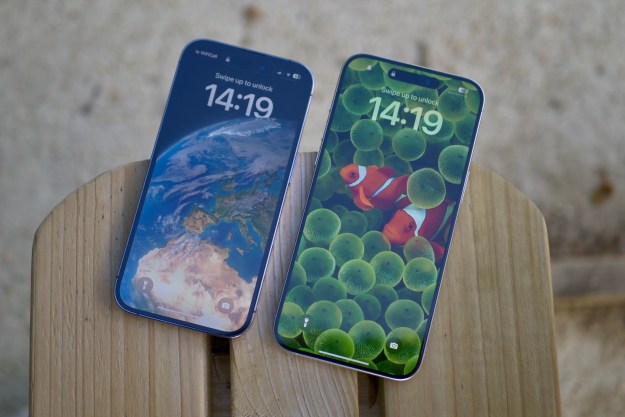
Apple has a long history of being troubled by certain words, subjects, and images. Its stance on both controversial, hot-button issues and seemingly innocent, or at least harmless, content sometimes verges on censorship, as it works to keep not only the App Store, but now iOS’s dictionary, free from edgy material it deems unsuitable.
Those of us who would rather Apple (or any other corporation, for that matter) didn’t force its viewpoint upon us often take issue with its actions; however, if we’re Apple users, we welcome its overlord protection elsewhere, and often cite it as a benefit of being part of the Apple club. Can we really have it both ways, or are we being as contrary as Apple?
Apple’s iOS dictionary won’t help you spell certain words
An article published by The Daily Beast brought the subject into the limelight recently. It claimed Apple was deliberately not offering autocorrect options on iOS for 14,000 different words. The words aren’t obscure or challenging, but controversial, sometimes politically sensitive, or simply suggestive of unpleasant situations. It appears that Apple would rather you spelt them wrong if you really must type them out. Obviously we’re not going to list all of the words, but a small selection will give you an idea of what’s causing a problem. They include rape, murder, virginity, masturbate, fornicate, bullet, ammo, and abortion.
Let’s be clear, you can still type the words into your iPhone or iPad, it’s just Apple won’t provide the correct spelling if there is an error. To prove it’s not by chance, type in ‘fornicatr’ (where the letter R has been mistakenly tapped instead of its neighbor, a common error), and a red line will appear under it – indicating it knows it’s wrong – but a double tap brings up a No Replacements Found message instead of the correct spelling. Apple treats swear words in the same manner. It’s not just iOS either, as the word “abortiom” garners no alternative suggestions when it’s typed into Pages on a Mac.
Not just a parental control issue
There has been evidence of this behavior before. Back in 2009, Daring Fireball printed a story about an app named Ninjawords, which was apparently denied entrance into the App Store until certain objectionable words were removed from its dictionary. Apple’s very own Phil Schiller responded to the column, saying the app was required to have either a 17+ rating, or to remove references to what he described as, “offensive urban slang.” This requirement of an adult rating doesn’t make any difference to iOS’s watered down dictionary though, as even with all the parental controls switched off, it still thinks the only possible alternative to “viginity” is”vicinity.”
The Huffington Posts’ Alexis Kleinman feels Apple’s so-called “kill list” of words could have potentially dangerous repercussions, as messages sent to emergency services at times of high stress could be misinterpreted if some words went uncorrected. Perhaps, but chances are if you’re texting 911, then something’s wrong, and no message is likely to go without a response. It’s still a valid point, and as the number of emergency texts increases, 23,000 were sent during the first five months of 2013. It can only become more relevant.
Not censorship, but close
It’s all a mess, and a ridiculous and almost childish mess at that, but are we being censored? Well, not really – at least not those of us who can spell without Apple’s help – but that doesn’t make this behavior any less annoying. It’s just another bizarre example of the company’s conservative approach to things it clearly feels are inappropriate. In the past, the word jailbreak was censored, i.e. with the majority of the word replaced by asterisks, while the first word in the title of Naomi Wolf’s book Vagina: A New Biography was treated in the same way.
But really, Apple’s just setting us up for awkward situations. Entering a message saying, “The missiom must be abortef,” the latter misspelled word wasn’t autocorrected, but “missiom” was. While the recipient of the message would still get it’s meaning, there’s really no decent reason why Apple should only autocorrect one word and leave another. It’s no wonder people accuse Apple of pushing its political agenda on its users.
Avoiding hypocrisy
Except, we’re wary to pressure Apple to change its ways, for fear of coming over as hypocrites. You see, Apple’s control over the App Store – where its censorship is more far reaching – means it’s free of most smut, too many rip-off clones of popular apps, and best of all, malware and other security risks. It’s a considerable selling point, and one which helps many of us recommend iOS to those less tech-savvy than ourselves, and continuing to download from the App Store without concern.
The late Steve Jobs directed us to the hive of scum and villainy where all this unpleasantness is freely available, so how does Google’s Android OS fare when we try to talk about abortion, murder, and self-pleasure? Using the standard Samsung keyboard on the Galaxy S3, it correctly guessed we were about to type those particular words, and highlighted them ready to correct. Try them on Windows Phone, in this case the Lumia 920, and again, it accurately predicts what we want to say before we’re halfway through typing the word out.
If you’re feeling wronged by Apple deciding to let your spelling of certain words go uncorrected, then the evidence shows you may be happier elsewhere; and while we’d rather Apple did grow up and kill its kill list, its control over the App Store does make it a more pleasant environment. A reality check over at Apple is definitely needed, but we’re loathed to ask them to pull down the castle walls entirely.
Editors' Recommendations
- Are you having iPhone alarm problems? A fix is coming soon
- Here’s how Apple could change your iPhone forever
- When will Apple release iOS 18? Here’s what we know
- We now know when Apple is adding RCS to the iPhone
- How to find and use transcripts in Apple Podcasts




